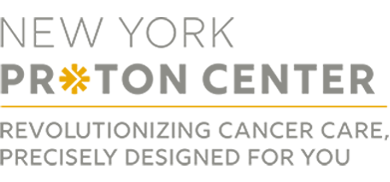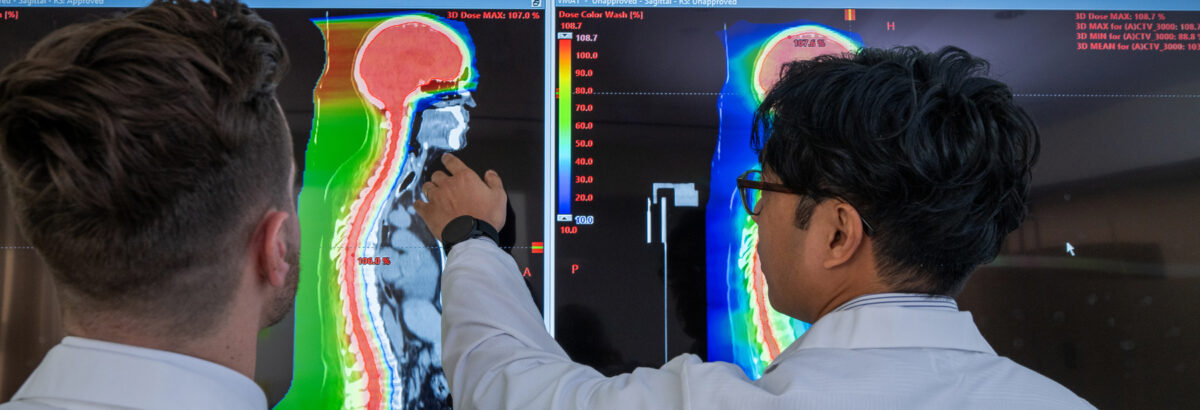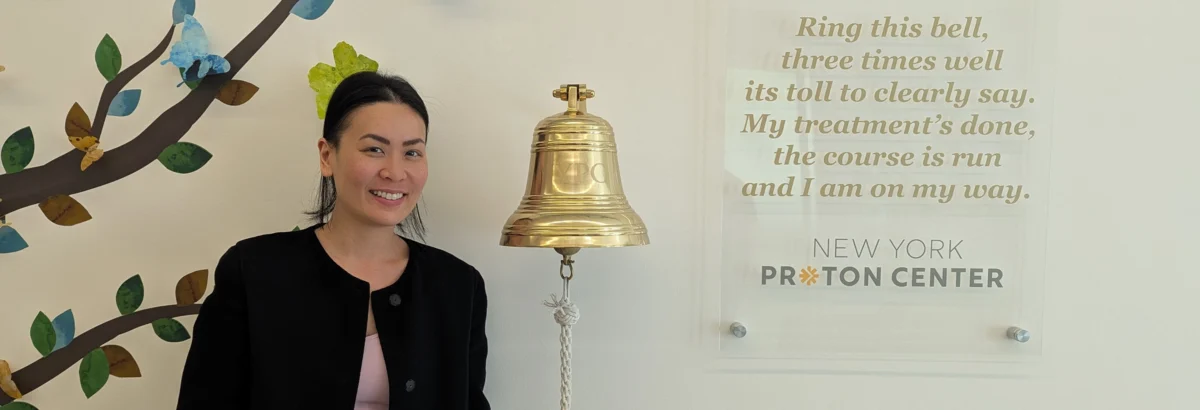NYPC at ASTRO 2022 Annual Meeting: Breast Cancer Research
As we reflect on October, Breast Cancer Awareness Month, we want to highlight some of the important and ongoing research being done by leaders here at the New York Proton Center.
Our own Dr. Isabelle Choi – NYPC’s Director of Research and Clinical Director, as well as a Radiation Oncology Attending at Memorial Sloan Kettering Cancer Center – delivered two presentations at the American Society for Radiation Oncology (ASTRO) Annual Meeting in late October, both focused on her recent industry-leading studies on radiation therapy for breast cancer. The first study evaluated reirradiation with traditional photon radiotherapy for recurrent or new primary breast cancers. The second examined the impact of advanced treatment techniques on brachial plexus sparing in the setting of reirradiation for high risk recurrent or newly diagnosed breast cancer.
Reirradiation with Photon Radiotherapy for Recurrent or New Primary Breast Cancer After Prior Breast Reirradiation
Reirradiation of tissues previously treated for any cancer presents increased risks for serious toxicities from treatment. Thus, reirradiation has historically been used sparingly, if at all, and with very heterogeneous practice patterns. Dr. Choi has previously reported that proton therapy can often be the safest way to retreat patients with breast cancer who have received prior radiation therapy. However, conformal photon radiotherapy techniques where the beam is closely shaped to the cancer may also present the opportunity for safe and effective reirradiation. In her new study, Dr. Choi and her colleagues examined whether modern photon therapy technology allows for breast reirradiation with limited toxicities.
The retrospective study included patients with recurrent or new primary non-metastatic breast cancer who were previously treated with breast or chest wall radiation therapy and received reirradiation with photons. Dr. Choi and her research colleagues found that the use of photon reirradiation for recurrent or new primary breast cancer was associated with acceptable rates of severe adverse events.
Comparative Evaluation of Brachial Plexus Sparing for Comprehensive Reirradiation of High Risk Recurrent or New Primary Breast Cancer
The second study looked at high risk breast cancer patients previously treated with photons and subsequently treated with protons for a regional recurrence. The aim of the study was to evaluate whether reirradiation with pencil beam scanning proton therapy may provide improved dose sparing to the brachial plexus, thus improving tumor control while reducing the risk of brachial plexopathy, a debilitating potential side effect from treatment. While additional studies are needed to confirm the findings, it does appear that the improved conformality made possible by pencil beam scanning proton therapy compared with intensity-modulated radiation therapy using photon beams can reduce the risk of brachial plexopathy for patients receiving reirradiation that included the lymph nodes, upper axilla, and supraclavicular area.
All of this research is crucial to the continued efforts of expanding access, availability and awareness of proton therapy – especially for patients with breast cancer. Dr. Choi has distinguished herself as a truly tireless industry leader and advocate in this work.
We are grateful to the breast cancer clinicians, patients, and survivors who are persevering and continuing to uplift this important work, share their stories, and overcome challenges.
About the Author
Dr. Isabelle Choi is the Director of Research and Clinical Director at the New York Proton Center. Her research focuses on improving outcomes, reducing toxicities and more effectively delivering radiotherapy for breast, gastrointestinal, and gynecologic malignancies. Among her select national leadership appointments, Dr. Choi is Chair of the Proton Collaborative Group Publications Committee and Breast Subcommittee, is Chair of the National Association of Proton Therapy’s Physician Advisory Committee, and is the President of the Korean American Society of Radiation Oncology.



